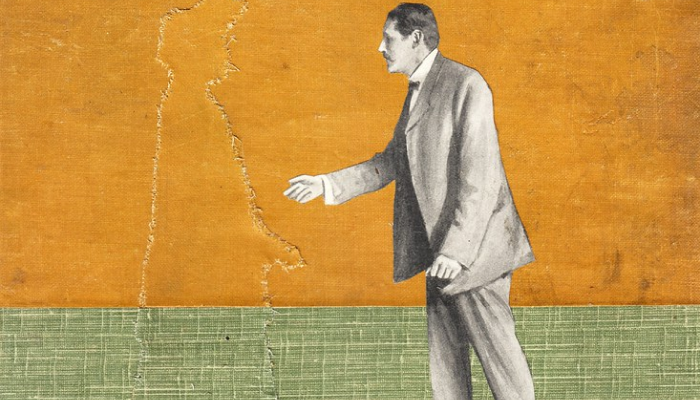
Elite poker players and sales professionals are a lot alike. Both make high-stakes decisions with incomplete information while tactfully reading others. Both require the ability to calculate risk versus reward, know when to push forward vs. when to walk away, and to maintain emotional control when everything's on the line. Here's what the card table can teach the sales floor.
Reading the Table: Spotting Tells vs. Buying Signals
Phil Ivey, widely considered the greatest poker player of all time, built his reputation on an almost supernatural ability to read opponents. In his MasterClass, Ivey explains: "Trust your gut and instincts and act on them. Usually, your gut is right, for me anyway."
In poker, tells are unconscious physical behaviors that reveal information about a player's hand. A slight hesitation before betting might indicate weakness. Touching the face could signal a bluff. Confident posture often means a strong hand.
Sales has its own version of tells, except we call them buying signals and objection patterns. When a prospect leans forward during a presentation, that's engagement. When they start asking about implementation timelines, they're mentally moving toward a yes. When someone says "I need to think about it" while avoiding eye contact, they're actually not thinking about it (and they're probably going to ghost you).
The best salespeople, like poker pros, develop an intuitive sense for these micro-expressions and behavioral cues. They notice when a decision-maker's tone shifts from skeptical to curious. They catch the moment when someone goes from asking "if" questions to "when" questions. The top salespeople (and poker players) trust their reads and apply pressure when they see an opportunity to win a deal (or a hand).
Bankroll Management: Your Pipeline is Your Poker Chips
Every poker professional understands bankroll management — never risk more than you can afford to lose, and always keep enough in reserve to survive bad runs. Legendary poker player Doyle Brunson, put it simply: "Poker is war. People pretend it is a game."
Sales pipelines work the same way. Your time, energy, and resources are your chips. Smart salespeople never go "all-in" on a single prospect, no matter how promising it looks. They maintain a diversified pipeline because they know that even deals that seem locked up can disappear overnight.
Consider this: professional poker players typically risk only 2-5% of their total bankroll on any single game. What percentage of your monthly quota are you betting on your "sure thing" deal? If it's more than 20%, you're not managing your pipeline — you're gambling with it.
Emotional Regulation: When Good Salespeople Go on Tilt
In poker, "tilt" is the kiss of death. It's when emotions cloud judgment, leading to poor decisions and bigger losses. A player goes on tilt after a bad beat and starts making increasingly desperate plays to recover their losses.
Sound familiar? How many times have you seen a salesperson lose a big deal and immediately start discounting everything, making desperate cold calls, or agreeing to unfavorable terms just to get something closed?
Poker players develop emotional discipline because they know that one emotional decision can wipe out weeks of profits. Sales professionals need the same mindset. When you lose a deal, analyze what went wrong, extract the lessons, and move on. Don’t take it personally, it’s just a part of the game.
Position Awareness: Knowing When You Have Leverage
As professional poker player Daniel Negreanu put it: "In poker, position is power. When you've got position, play more hands and apply more pressure before the flop." Position in poker refers to where you sit relative to the dealer — later positions see what everyone else does before making their decision.
Sales has a position too. Are you calling them, or did they call you? Are they actively shopping, or are you interrupting their day? Are you early in their buying process or competing against established relationships? Are they under pressure to make a decision, or can they wait indefinitely?
Most salespeople don't recognize when they're in a weak position and try to play the same aggressive game regardless. That's like trying to bluff from an early position with a terrible hand—it rarely works.
Pot Odds Thinking: Should You Chase This Deal?
Every poker decision comes down to pot odds: is the potential reward worth the risk based on the probability of success? If there's $100 in the pot and it costs $20 to call, you need better than 20% chance of winning to make it profitable.
Sales professionals need to think the same way about deal pursuit. What's the potential commission? How much time and resources will it require? What's the realistic probability of closing?
Too many salespeople chase low-probability deals because they focus on the potential upside without considering the costs. A $100,000 opportunity might sound exciting, but if it requires six months of effort and has a 10% close rate, you're looking at an expected value of $10,000 for six months of work. Your time might be better invested in smaller, higher-probability deals.
The best salespeople constantly calculate deal odds. They qualify hard to establish realistic close probabilities. They track time invested versus potential return. And they're not afraid to fold when the math doesn't work, even if the pot looks tempting.







